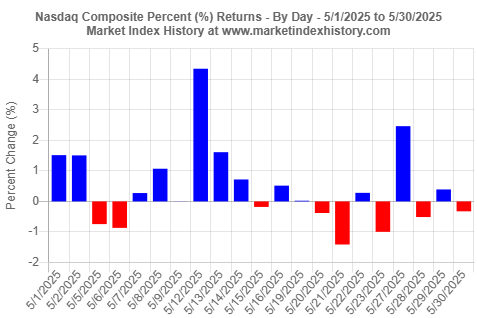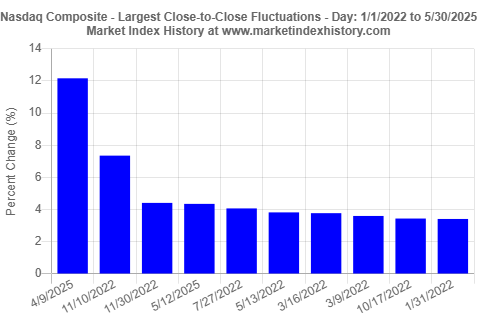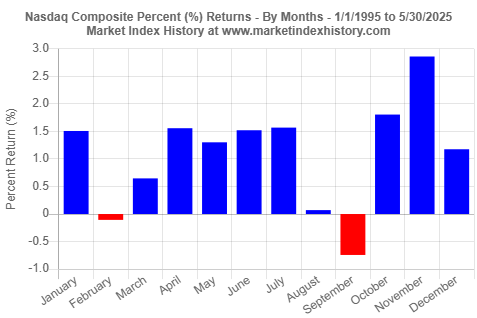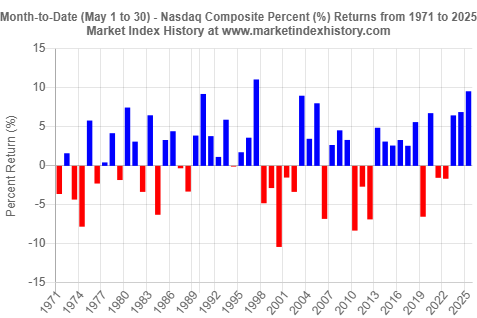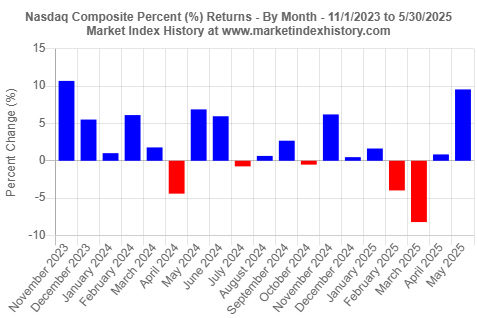We used our publicly available analysis tools to understand the performance of the Nasdaq Composite index within a historical context of market performance. In particular, we wished to better understand how Nasdaq Composite index performance in May 2025 compared to performance in May of previous years.
We start with a look at the Nasdaq Composite index daily returns in May 2025 (Figure 1). The largest single-day gain recorded in May 2025 (+4.35% on 5/12/2025) is the fourth largest single-day gain recorded since November 2022 (Figure 2).
Historically and on average, the Nasdaq Composite index has shown positive returns in May. Figure 3 shows average monthly (January to December) returns for the Nasdaq Composite index from January 1995 to May 2025. Based on this 31-year dataset, the Nasdaq Composite index has exhibited an average return of +1.30% in May.
To delve deeper into the analysis shown in Figure 3 with a focus on the month of May, we examined the Nasdaq Composite index performance for every May from 1971 to 2025 (Figure 4). In May 2025, the Nasdaq Composite index had a gain of 9.56%. As shown in Figure 4, this is the second best May performance ever for this index since May 1971.
We then looked at monthly returns of the Nasdaq Composite index from November 2023 to May 2025 (Figure 5). Figure 5 shows that May 2025 performance is the best performance for any month since November 2023.
Summary
May 2025 was a historic month for the Nasdaq Composite index. The Nasdaq Composite index gained 9.56%, its second highest gain for any May since May 1971. The gain was also the highest single-month gain for this index for any month since November 2023. In spite of this historic May performance, as of 5/30/2025, year-to-date return of Nasdaq Composite index continues to be negative (-1.02%).
To gain additional historical insights about market index performance, use any one of our Market Index Analysis tools. We use these analysis tools ourselves to gain insights into market performance and to highlight a variety of interesting observations in our historical insights articles.





